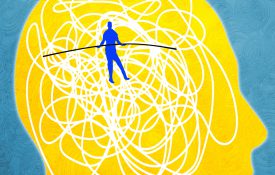-

Mental Flexibility May Buffer Against Emotional Stress
Brain imaging research suggests that our ability to do “cold” math calculations may be connected with our ability to regulate “hot” emotions.
-
New Research From Clinical Psychological Science
Read about the latest research published in Clinical Psychological Science: The Vicissitudes of Positive Autobiographical Recollection as an Emotion Regulation Strategy in Depression Aliza Werner-Seidler, Laura Tan, and Tim Dalgleish In this study, the authors examined whether the concordance or discrepancy of a memory with the person's current self impacts the effect of that memory on mood. Depressed and never-depressed British participants rated their mood; never-depressed participants then watched a video designed to induce a sad mood, whereas depressed participants watched a neutral movie.
-

Car Talk: Contentious Conversations Drive Distraction
Engaging in a heated, emotional discussion with a passenger can turn into a dangerous distraction for drivers.
-

People Love Working with Extraverts, Until the Going Gets Tough
The same qualities that led to an “extravert advantage” when teams functioned smoothly led to exacerbated tensions when teammates faced conflicts.
-

Higher Status People Are Meaner Drivers
Frustrated drivers are more likely to lash out aggressively at vehicles they perceive as having a lower social status.
-

Scientists Explore How Nutrition May Feed Mental Health
A special section in Clinical Psychological Science highlights the different approaches that psychology researchers are taking to understand the many ways in which nutrition and mental health intersect.

